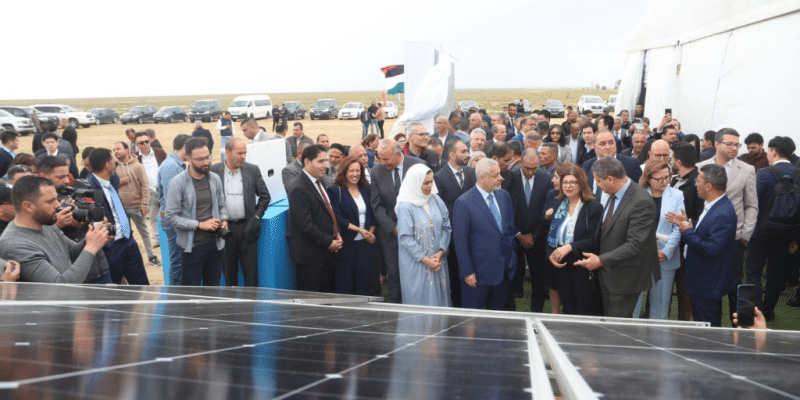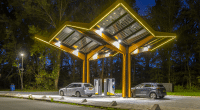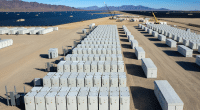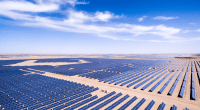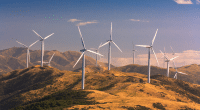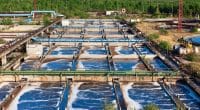Work has just started on Tunisia's largest solar power plant in the governorate of Kairouan. Developed as part of a public-private partnership (PPP) by the Emirati company Amea Power, this project should enable Tunisia to catch up in terms of renewable energy deployment.
In 2021, renewable energies will account for just 3% of Tunisia’s electricity mix. This share could increase by 2025 with the planned commissioning of the Kairouan solar power plant. Construction of the plant was launched recently by the Emirati independent power producer (IPP) Amea Power at a ceremony attended by Fatma Thabet Chiboub, Tunisia’s Minister of Industry, Mines and Energy.
في حفل وضع حجر الأساس لمشروعنا بالقيروان للطاقة الشمسية الكهروضوئية بقدرة 120 ميجاوات في تونس 🇹🇳، مع معالي السيدة فاطمة ثابت شيبوب، وزيرة الصناعة والمناجم والطاقة التونسية؛ و معالي الدكتورة إيمان السلامي، سفيرة الإمارات لدى تونس؛ و السيد فيصل طريفة، المدير العام للشركة التونسية… pic.twitter.com/JP1qR2l5pP
— Hussain Al Nowais حسين النويس (@HussainNowais) May 8, 2024
“This is an important milestone for Amea Power, as we are laying the foundation stone for the country’s first privately financed solar project, paving the way for a greener Tunisia,” said Hussain Al Nowais, Chairman of Amea Power, which is developing the Kairouan solar project under a public-private partnership (PPP), under which the electricity generated will be sold to Société tunisienne de l’électricité et du gaz (STEG).
Support from development banks
The Metbassta solar power plant will have a capacity of 120 MWp, making it the largest solar power plant in Tunisia. After development, financing and construction, the plant will be operated by the special purpose vehicle Kairouan Solar Plant, wholly owned by Amea Power. The company, based in Dubai in the United Arab Emirates, is building the power infrastructure with $86 million in debt financed by the African Development Bank (AfDB) and the International Finance Corporation (IFC), the private sector financing arm of the World Bank Group.
Read also- TUNISIA: EBRD finances two photovoltaic solar farms in Kasserine for €7 million
In addition to supplying Steg with clean electricity for 20 years, the plant will offset 117,000 tonnes of carbon dioxide (CO2) emissions. Its annual production is estimated at 222 GWh, enough to supply 43,000 Tunisian households with electricity. However, the first MW will not be produced until the fourth quarter of 2025.
The reasons for Tunisia’s delay
The construction of this plant will enable Tunisia to begin its energy transition. The country is rightly considered (along with Libya) to be the worst performer when it comes to developing renewable energies, despite the political will shown in recent years. For example, the Kairouan project was awarded to Amea Power in 2020. It is now entering the construction phase after 4 years of development.
A long time, given that Tunisia is 97% dependent (official figure for 2021) on natural gas for the production of its electricity. For Mohamed Chorfi, a specialist in business law, the delay since the launch of the Tunisian Solar Plan (PST) in 2015 is due to the “regulatory framework governing the development of renewable energies, which lacks clarity and transparency for national and international players. What’s more, STEG’s blocking of the connection of renewable energy production plants has caused Tunisia to lose millions of dollars in unrealized investments, mostly in foreign currency for the State, and has largely undermined the confidence of investors and developers”.
And “because of all these difficulties, projects launched under contracts signed by Steg are considered risky by banks and are difficult to finance”, explains the lawyer. Yet Tunisia was well on the way to becoming an energy powerhouse in the North African sub-region, with exploitable solar potential estimated by the Agence nationale pour la maîtrise de l’énergie (ANME) at between 340 and 844 GW. For the time being, Tunis aims to produce 35% of its electricity from renewable sources by 2030.
Jean Marie Takouleu

